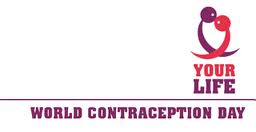A Billion Reasons to Celebrate World Contraception Day
Sep 26th, 2013 | By admin | Category: Family PlanningBy Suzanne York, www.howmany.org
Today is celebrated as World Contraception Day. Perhaps there are not actually a billion reasons to celebrate it, but there is a case to be made that a billion dollars would go a long way in meeting the need for contraceptives for women and families all over the world.
Banks or People?
Access to family planning is a basic human right and the call for $1 billion in funding for family planning supports the rights and empowerment of women around the globe. Check out this 2 minute video – Dollars and Sense – by Population Action International on why $1 billion U.S. dollars is a good investment. If you think that is a lot of money, recall that the 2008 U.S. bank bailout was $700 billion.
To put it another way, this is only .03% of the U.S. federal budget; this amounts to $3 per American per year, or the price of a small latte. And for every $1 spent on family planning, $4 is saved in other programs, such as education.
There are 222 million women in developing countries who want to avoid or postpone pregnancy but who lack access to modern contraception. An investment in voluntary family planning is an investment in their future, and that of their families.
Here is a great infographic by the U.S. Agency for International Development called Contraceptives Save and Improve Lives, with statistics on the need for contraceptives and family planning and how it benefits people. It highlights how contraceptive usage can save the lives of mothers and their children by spacing and limiting pregnancies.
The Centers for Disease Control has declared the development of modern contraception to be one of the 10 most important public health achievements of the 20th century.
Local Need
And lest you think this is applicable only internationally, think again. Here in the U.S. we are once again battling for family planning services, in the halls of Congress, in cities, and in rural areas.
For example, a rural health clinic recently closed near Bakersfield, California. This summer a local board of supervisors voted to close the Hanford Women’s Clinic, which offers reproductive health and family planning services. Such closures are happening more and more across the U.S., but in a “blue state” such as California, it is not normally expected to occur.
For many people, especially in rural and/or remote locations, contraceptives and reproductive health services can be difficult to get and women can’t always afford the more effective contraceptive methods. Often times these health clinics make an enormous difference in the lives of women.
And for some good news, as Obamacare begins to go into effect, women with employer-sponsored health insurance are able to get a range of birth control options at no additional cost to them.
Take ActionOverall, women who use contraception are generally healthier, better educated, more empowered in their households and communities and are more economically productive. That’s true both here in the U.S. and abroad.
So on this World Contraception Day, let’s remember that if women everywhere had access to family planning, the benefits will ripple outwards – future population growth would be slower, the lives of women and children would be improved, it would help alleviate poverty, and there would be reduced pressure on over-taxed ecosystems and environment.
To do your part, please tell your representatives that voluntary family planning services are a cost-effective and life-saving investment. Take action by signing this Invest in Family Planning petition.
Suzanne York is a senior writer with the Institute for Population Studies.


